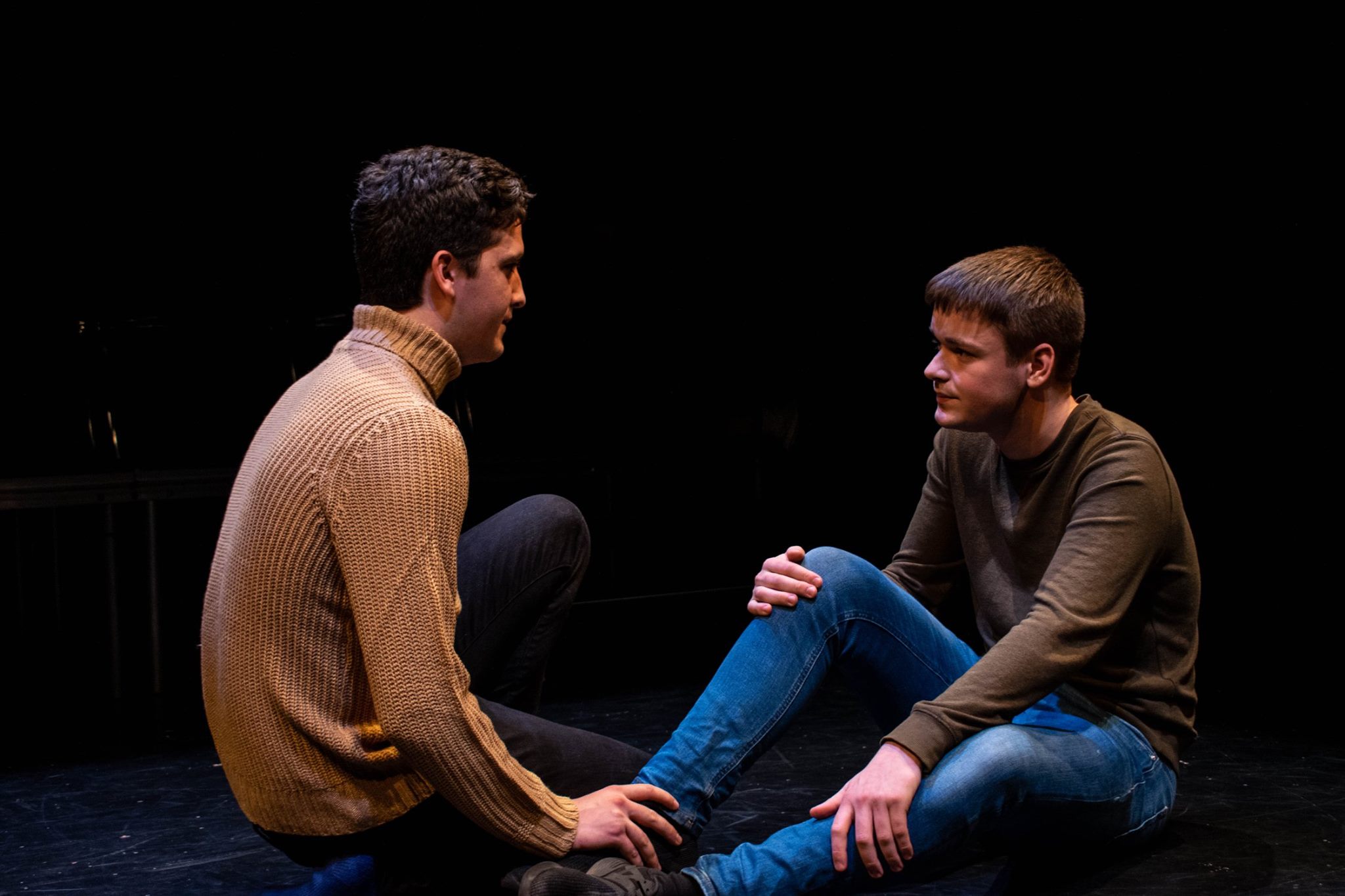Cock premiered in 2011 in the Royal Court Theatre, it was written by Mike Bartlet, an University of Leeds alumni, and this year it completes 10 years since its creation. The play defies expectations of what theatre should be from the get go. It relies solely on the characters interactions, with no props or set, and even its name demands some sort of reaction, be it interest or repulsion.
The story is no less provocative as it follows John, an out gay man played by Luke Holland, as he navigates his confusions in life and causes conflict for everyone around him. He breaks up with his long-term boyfriend (Joel David), then, to his and everyone´s surprise, has sex and falls in love with a woman (Emily Cosaitis).
Both of the main character´s romantic entanglements demand an answer, not just of who he wants to be with but about who he really is, something the protagonist doesn´t even know himself. It is a timeless conflict, made even more personal by the performances of M and W, the man and the woman, who really show the agony and anxiety of having to wait for their loved one to make a decision that could make or break their relationship, and their heart, all the while intricating humour and personality into the characters. Charlie Crozier’s performance as F in the latter part of the show built the intensity superbly, bringing forward the underlying question of the importance of identity labels and familial structures towards John’s final decision. The dialogue is quick and visceral, and really grabs the audience´s attention for the entirety of the almost two-hour run of the play.
Even though Cock was written one decade ago, it touches on the very modern theme of sexual fluidity, a subject even though more accepted nowadays, it still provokes heated discussions and disagreements, something the play is in no shortage of. But the modern treatment of such a taboo matter feels less fresh when compared with the blatant misogyny the script conveys. The woman John falls in love with may have a voice in the story, may fight back and have strong and smart dialogue, but she is still presented in the play as a means to an end. For John to have a “real” family he must be with a woman who can bear his children, and that fact is hammered in more than once.

